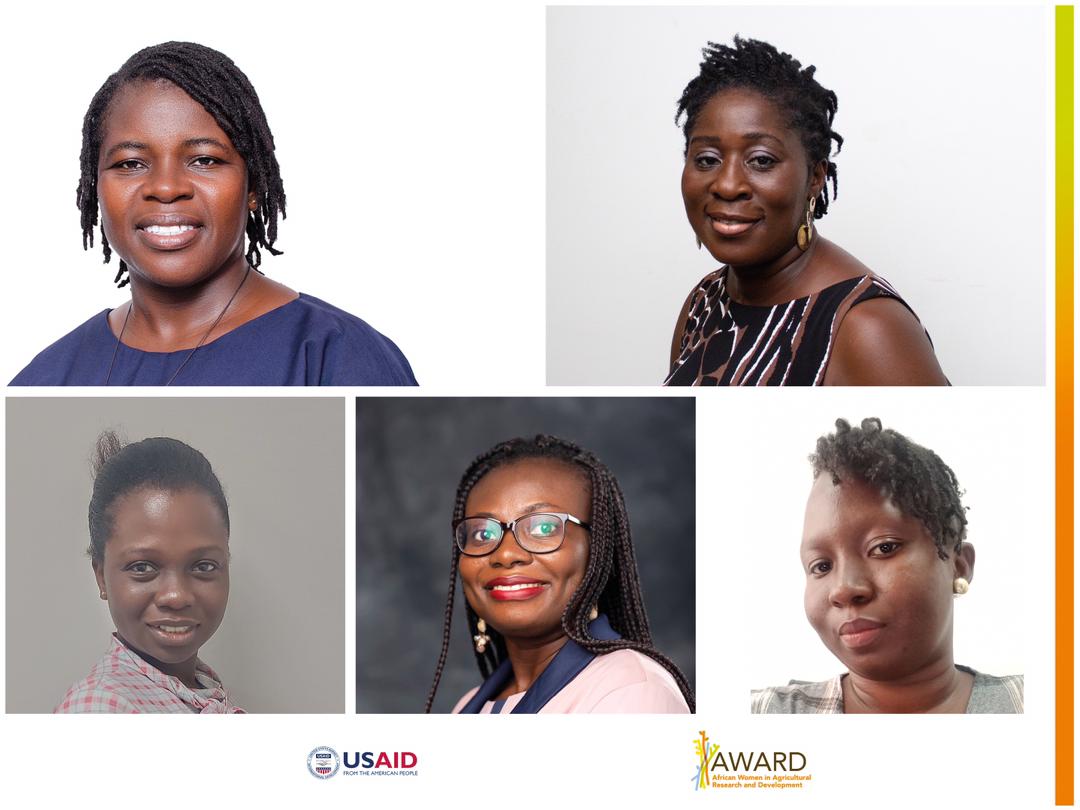The Gender Responsive Agriculture Systems Policy fellowship, (GRASP) as part of its Fellow selection, has chosen 5 Ghanaian women to be a part of the 49 women selected for its first cohort.
The fellowship, which is an initiative of African Women in Agricultural Research and Development (AWARD), funded by the United States Agency for International Development (USAID), is targeting African women in agri-food policies who can support the implementation of gender-responsive agricultural policies in Africa.
The 49 AWARD Fellows were drawn from diverse backgrounds and fields including the private, government and non-governmental organizations and were chosen from Zambia, Uganda, Nigeria, Malawi, Kenya and Ghana.
These women are set to participate in a series of intervention programs specifically designed to enable them become more effective policy practitioners.
Research shows that, women, despite not given due recognition, are responsible for nearly half of the world’s smallholder farms and produce 70% of Africa’s food and these 5 Ghanaian GRASP Fellows, are working tirelessly in their respective fields to make a difference.
To aid in enhancing women’s position within agriculture and creating economic opportunities for them, Fellow Rose Aawulenaa works for Plan International on their Women’s Innovation for Sustainable Enterprises(WISE) project, which has enabled over 12,600 women receive training to develop their communication and business development skills. “When you get to work with people, especially women, and you’re able to make an impact in their lives, the smile on their faces alone brings fulfilment,” she stated.
Portia Adade Williams, who is with the Science and Technology Policy Research Institute (STEPRI), mentioned that, “In the face of a changing climate, we must support the poorest and most vulnerable by building a resilient agricultural system which includes researching ways to build the adaptive capacity of smallholder farms against climate change and to sustain their productivity.”
Clara Agyeman-Attafuah, another Fellow who is most concerned with improving food safety works with the Ministry of Food and Culture and targets policymakers to improve support for agricultural actors at the highest level.
Comfort Yelipoe also works in the Ministry of Agriculture under the Directorate of Crop Services and is currently working on building a seed database to help develop environmentally-sustainable and affordable seed varieties for farmers.
Through her position at Foundation for Security and Development in Africa, Augustina Quaynor develops programs to train young agricultural workers in advocating with policymakers and stakeholders.
Looking at the contribution of women in the agricultural sector, it is necessary for Ghana government, to create and implement effective policies to make the sector more gender-inclusive and to accord women the recognition due them in the sector.


Comments are closed.